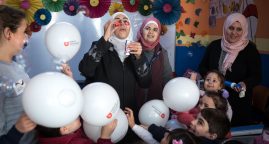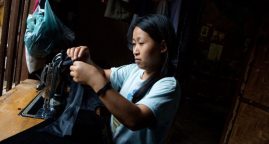EU-Turkey Agreement: the concern of the “Œuvre d’Orient”
“This is a historic day,” Turkish Prime Minister Ahmet Davutoglu did not hide his pleasure after the agreement reached, on Friday, March 18, 2016, with the European Union to slow the influx of migrants.
An enthusiasm not shared by all and especially by many NGOs who cry foul. All illegal migrants in Greece will be returned to Turkey after this Sunday. Each Syrian returned another will be relocated in a European country.
In exchange for measures to prevent departures from its coasts to Europe, Ankara received additional 3 billion euros of EU aid. Moreover, Europeans have agreed to accelerate the process of visa liberalization for Turkish citizens, and commit to open a new chapter in Turkey’s accession negotiations to the EU. Mgr Pascal Gollnisch, director of the the Œuvre d’Orient expressed his reluctance.
(in french)
Cardinal Pietro Parolin, Secretary of the Holy See, visiting Macedonia, visited a refugee camp in Gevgelija, on the border with Greece. He could hear the heartbreaking story of migrants and their application to reopen the borders. The cardinal reiterated his call for an agreement that emphasizes humanitarian law. “Europe can do because it has always stood, since the end of World War II, for his humanitarian spirit and respect for humanitarian law,” he said.
Translate from the french.
Read the full article in french on Vatican radio website
Related Articles
The crisis of multilateralism and the future of humanitarian action
11/30/2016. Long before the November 2016 US elections, there were clear signals that multilateralism was in crisis. In fact, Donald Trump’s election is just the continuation of a downward spiral that has been under way for some time.
Malteser International | Syria’s War Children | No lost generation
06/20/2017. Syria’s War Children | No lost generation
Where do we go from here? 1st Annual Grand Bargain Meeting
06/20/2017. “Together we were determined to reset our ways of working and refocus our efforts on achieving humanitarian gains” Peter Maurer.






